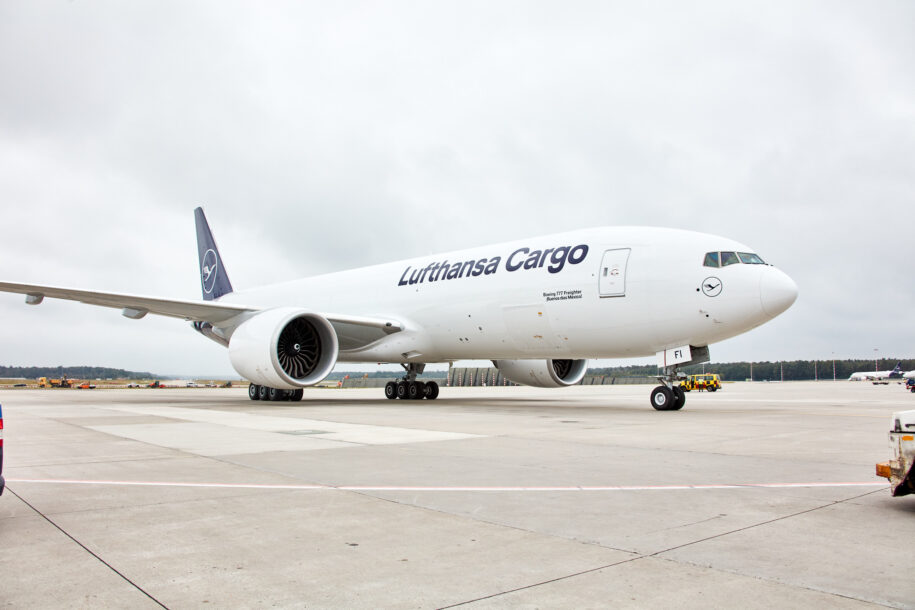
Lufthansa Cargo downplays impact of vaccine volumes
Lufthansa Cargo is not expecting Covid-19 vaccine volumes to have as much of an impact on the air cargo market as many had first thought.
Speaking following the announcement of the cargo firm’s 2020 financial results, chief executive Dorothea von Boxberg said that the airline expected around 45% of total vaccine volumes to be transported by air.
This is lower than previously expected and comes as an increasing number of vaccines are launched, which can produced regionally and then transported using overland transport.
- “That is because so many areas have their own production sites for vaccines,” she said. “Right now the US is vaccinated with vaccines that our produced there, the same is true for Europe, for India, for China, for Russia. So at the moment we aren’t seeing many shipments.”
Lufthansa Cargo is expecting volumes to pick up in the second and third quarter of the year as more vials are exported from Europe, von Boxberg said.
In total, Lufthansa Cargo is expecting 87,000 tonnes of Covid-19 vaccines to be transported by air, with the volumes handled by the airline itself expected to be less than 10,000 tonnes.
- “It will be significant, it will be noticeable, but it won’t congest all the aircraft. As a comparison, in 2019 we transported almost 100,000 tonnes of cold chain/pharma shipments.
- “That extra 10,000 is good to have and we are glad to help but it is not major game changer for our industry.”
Von Boxberg pointed to how its estimates for vaccine volumes had changed between September and December.
For instance, it is now expecting 40m doses of vaccine to be transported from North America to Europe, previously it had been expecting 330m doses.
This dramatic reduction is largely due to Johnson & Johnson expanding its production capability in Europe. In the opposite direction 70m fewer doses are expected than in September at 180m.
Doses from Europe to the Indian subcontinent are 40m lower than originally predicted at 940m doses, Europe to Asia Pacific estimates have dropped from 1bn doses to 940m, Indian Subcontinent to Asia Pacific is 130m lower at 370m doses and Indian subcontinent to Africa is 75m lower than expected at 525m doses.
Von Boxberg is not the only air cargo executive to have reported that vaccine doses are lower than many had originally thought.
In January, Dominic Kennedy, managing director of Virgin Atlantic Cargo, said the amount that is being flown compared with the amount that is being trucked is relatively small.
- He said: “We are gearing up for playing a part but anticipating that is really not going to happen until the middle part of 2021.
- “There is a huge amount of manufacturing capacity in the UK, Belgium, Germany and some other places in Europe and most of the output of those manufacturing sites is for local consumption, it’s not for international consumption.
- “But we do see a significant lack of production capability in places in Africa, Pakistan, large swathes of Southeast Asia. Once that local consumption has been satisfied, then you trigger the international need.”
Dan Morgan-Evans, group cargo director at the UK-based global charter broker, said that vaccine demand may not be as high as many had expected.
Morgan-Evans said that the full picture of future airfreighted vaccine distribution is “a bit of an unknown” but he does not believe initial industry predictions that we will require 10,000 freighter flights to move vaccines worldwide because some vaccine production will be mostly at a domestic level, in the US for example.
This is now the consensus opinion expressed by a number of pharma logistics pundits in recent webinars.
- “We are doing some vaccine charters now, sending vials to various places around Europe, but these are very small aircraft.
- “You can get a lot of vials in an aircraft and I don’t know whether you will get to a stage similar to the PPE gold rush. I am not convinced of that.”
He offered a proviso: if the mutant variants of Covid-19 require current vaccines to be adjusted, then there may be a repeat surge.
- “If the vaccine does play into the airfreight market, it will probably be the knock-on effect further down the line.
- “Some non-vaccine products will not fly because of a lack of belly space, so that will affect the commercial market.”
- Source ST

If you need assistance with import and export of international goods, you can contact our Smart Link team. guide service consulting as well as necessary related customs procedures.


































